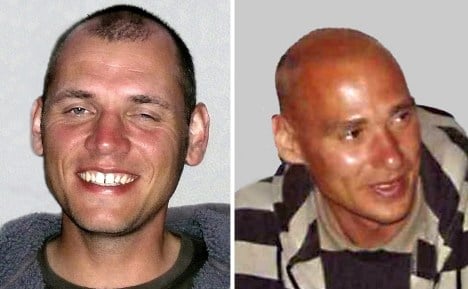Mundlos and Böhnhardt, members of the self-styled National Socialist Underground (NSU) terrorist cell, botched a bank robbery in Eisenach in the eastern German state of Thuringia on November 4 – and fled the crime scene on bicycles, Bild newspaper reported on Sunday.
As the pair headed for their campervan parked up in another part of town, they were listening over police radio to how the search for them was being conducted.
They could have escaped police, but instead waited almost an hour before Mundlos shot dead Böhnhardt and then himself in the campervan, the paper said.
They would have heard that the police dragnet was due to be lifted after an hour and a half, and could have escaped out onto the motorway in their van, but they did not.
Instead they waited almost an hour until the police came across them by accident, said Bild.
Mundlos and Böhnhardt, together with Beate Zschäpe are thought to have killed nine people of immigrant descent and a policewoman between 2000 and 2007, as well as robbing 14 banks.
The news that the terrorists could have escaped is a further embarrassment for the authorities, who initially assumed the string of killings were connected to organised crime, only joining the dots in 2011 when the group self-destructed and the gun used in the killings was found in their flat.
Investigators reconstructing the terrorists’ last moments said it took Mundlos just 15 seconds to shoot dead Böhnhardt, set their campervan alight and commit suicide himself.
As police approached, Mundlos climbed into the back of the vehicle and started a fire before turning the gun on himself.
Zschäpe, believed to have co-founded the terrorist cell, gave herself up to police a few days later after the incident and is currently in prison awaiting trial.
DADP/The Local/jlb




 Please whitelist us to continue reading.
Please whitelist us to continue reading.
Member comments